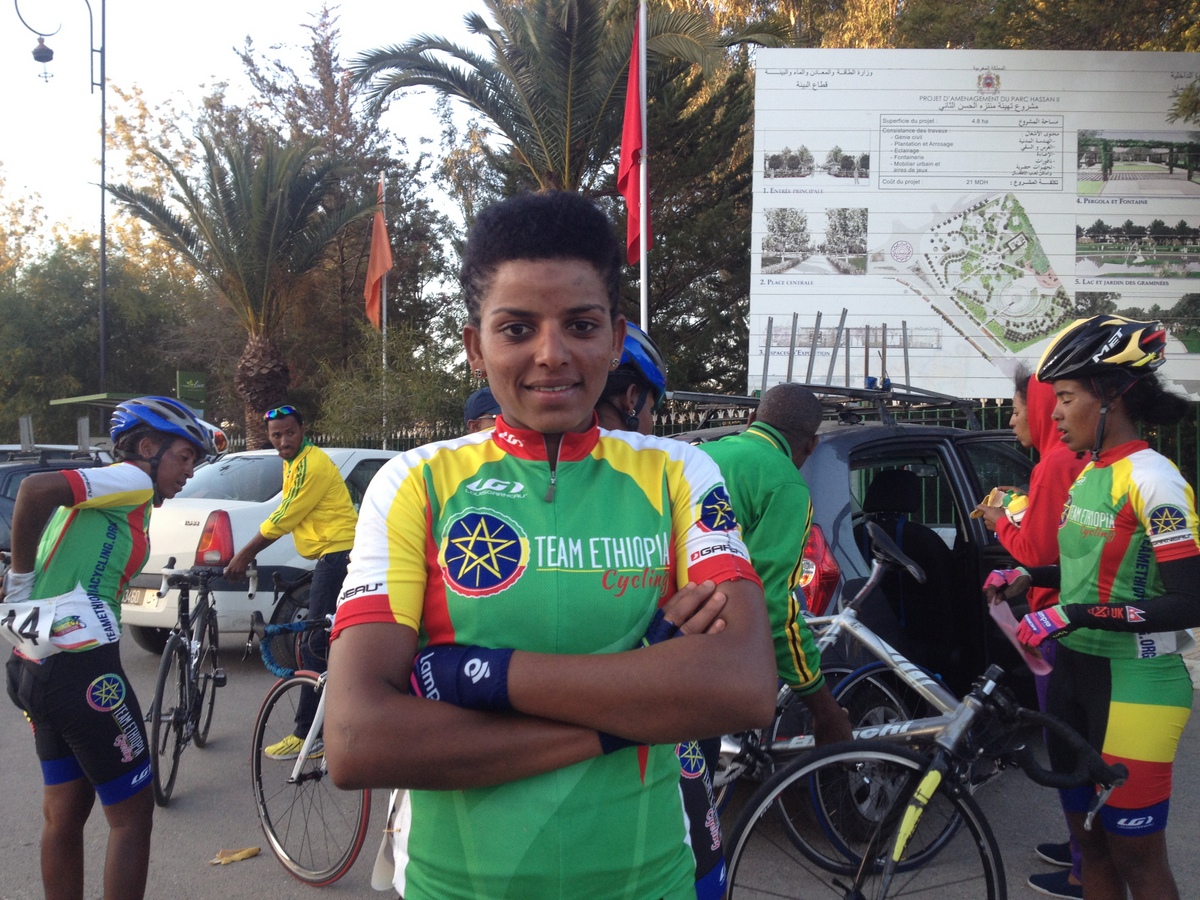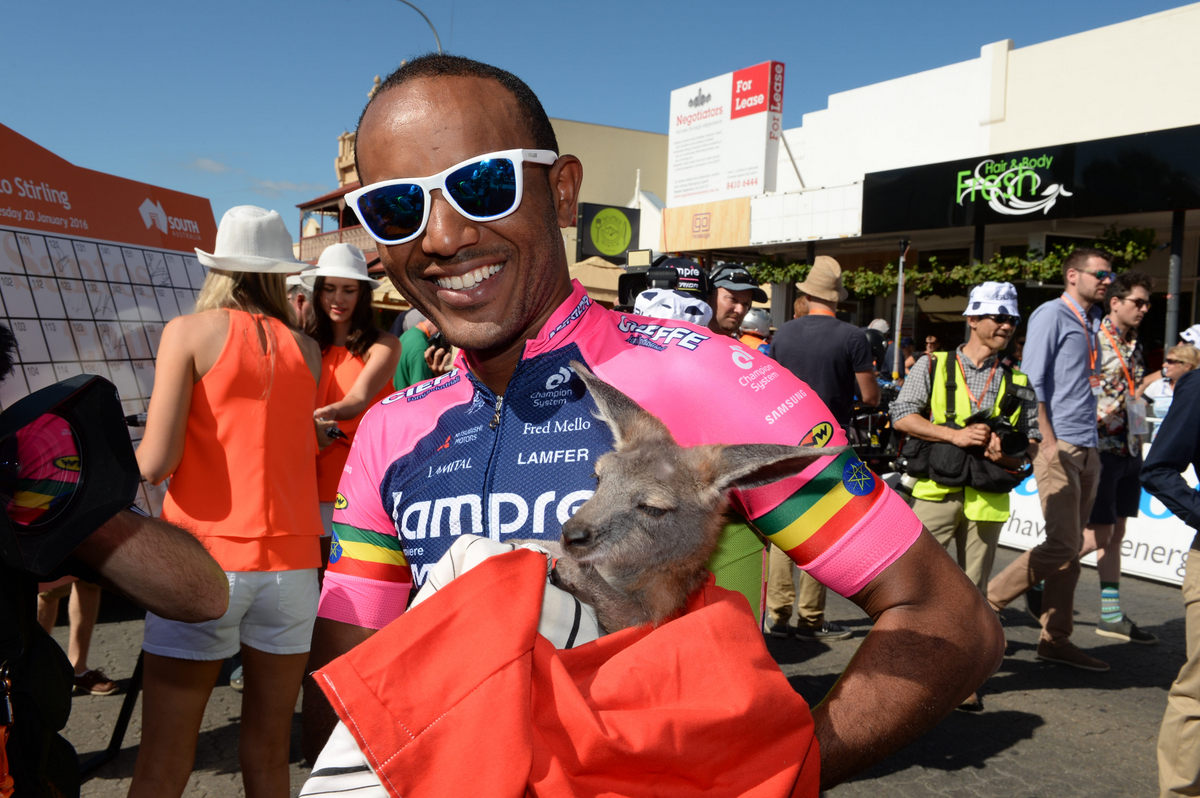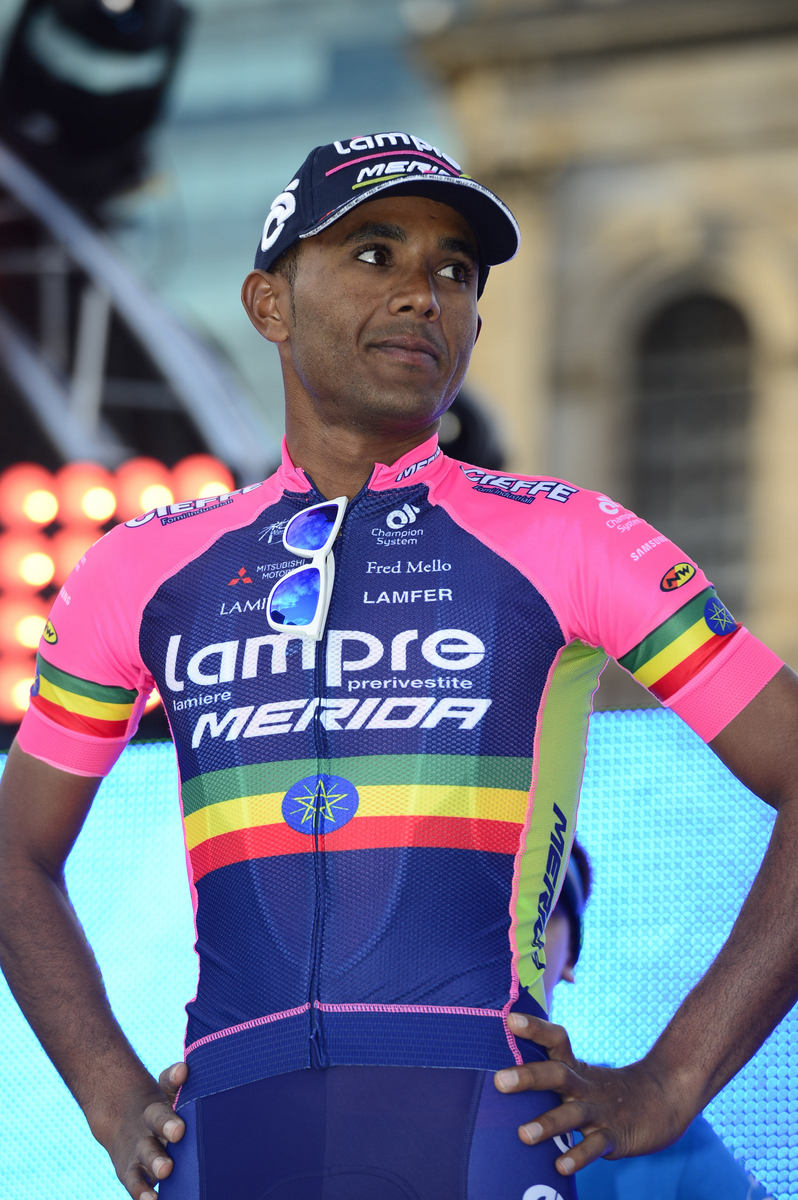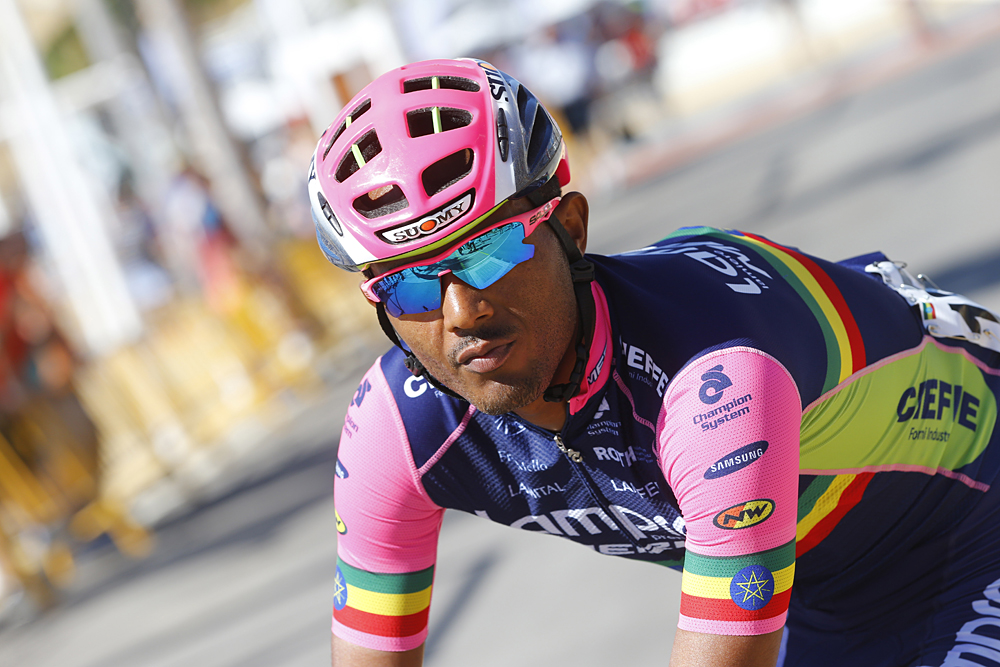Ethiopia's Hadnet Asmelash dreaming of turning pro in Europe
Girlfriend of Lampre-Merida rider Tsgabu Grmay is one of the best female cyclists in Africa




From her home in Ethiopia, Hadnet Asmelash never missed a stage of the Giro d'Italia last year. Whatever the race went through, the flat stages or the Dolomites, she tried to see her boyfriend, Tsgabu Grmay of Lampre-Merida, the first black African to compete in the Corsa Rosa in over one century. But Hadnet, 22, is not a pro rider's partner like the others. She is a cycling champion in her own right, and she dreams of becoming a professional in Europe, following the path of Grmay.
The two Ethiopians don't see each other much, as he lives in Lucca, Italy, and she still in Ethiopia. They enjoyed being reunited this week in Casablanca, Morocco, where they both raced the African Continental Championships. On Friday, Hadnet finished ninth in the road race, ten seconds behind the winner, Vera Adrian of Namibia. For his part, Grmay will be one of the favourites for the men's race on Saturday, which takes place over a distance of 180 kilometres.
"My dream is to race in Europe and I am fighting to make it true," Asmelash told Cyclingnews after a later dinner near the Corniche, in Casablanca. "Sometimes I have been doubting because I don't see any concrete offer coming."
"I have to admit, it is very difficult for a woman to be a cyclist in Ethiopia," Grmay confides. "It is hard for men too but even harder for women because they don't have opportunities to be real professionals."
Asmelash, a seven-time national champion, is one of 18 female riders in her region of Mekelle, north of Ethiopia. Her life looks easy at first: she trains every morning at an ideal altitude of 2,400 metres, she learns English in the afternoon, reads books, rests and races on Sunday with a record to break as she has "never lost" a race since she began cycling.
She shares a big house with 18 men and 6 women supplied by her team, TransEthiopia, and gets the same salary as the best male riders in the club (3,300 ETB or $155). She is treated well and obviously loved by people in that region, where cycling is highly popular. But she now needs to give a new turn to her career.
"I'm so tired of not being able to find a professional team that several times I have considered pulling out," she says. "I see I have no future in cycling and I would rather start a new job. I am a graduate in sports sciences, so I could work as a coach."
The latest race content, interviews, features, reviews and expert buying guides, direct to your inbox!
Hadnet is still hopeful, however. "I think a career is like a breakaway. You try, you try, and sometimes you don't break out from the peloton."
At the African Championships this year, she attempted to attack on the first climb of the circuit on each of the two 60km laps, but she was caught. The race ended up in a sprint, and she was confused in the finale because her powermeter said she still had 5 kilometres to ride when there were only 200 metres remaining.
Last year, the Ethiopian climber was unfortunate, too, facing a pack of South Africans who worked against her, including Ashleigh Moolman, a professional at Cervélo-Bigla.
Some great news may also have come from the 2016 championships, though, which explains why Asmelash is keeping her smile. She finally met a team manager who offered her a contract with a new squad of ten cyclists that is going to be registered at the UCI and will race mostly in France. Asmelash is certainly happy but not celebrating the moment until she officially signs the contract.
"She is a climber like me, and she has a lot of talent," Grmay says.
Asmelash: "Tsgabu always tells me to wait, he gives me self-confidence."
Grmay: "She needs more confidence indeed. This is like with her English. She speaks well but doesn't believe in it."
Although she apologizes when she talks and looks shy, Asmelash is a tough girl. She left gymnastics when she was 15 and started cycling – she does "not know why," but the idea was pretty good, after all. In 2014, her mother, who raised her and her two sisters and brothers, passed away and Asmelash delivered her best performance one week later to capture a bronze medal at the African Championships. "I thought I had something to do with my life," she says.
"Doing something with her life," Grmay repeats as in a echo. "She has a great future on a bike indeed."